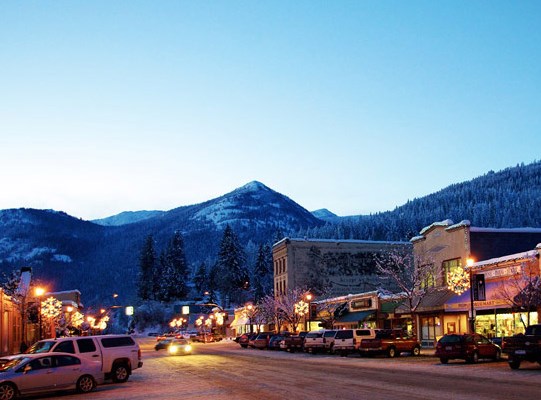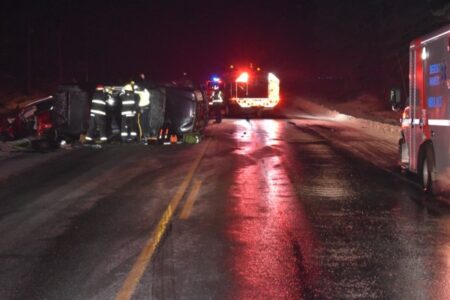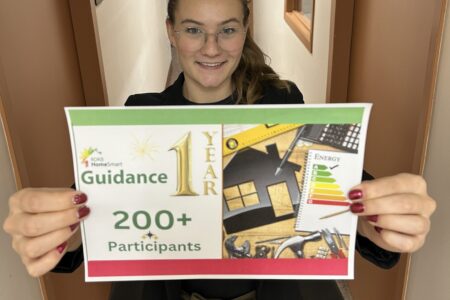Op/Ed: An imagined look back at the COVID-19 crisis
There are many things that could happen as we face the Covid-19 pandemic. Here is an imagined vision of the future that is possible, though not likely unless people take the appropriate actions. I have imagined a path to a positive outcome. How do you think it will play out?
Let’s imagine this future and how it happened:
It’s now September 2020 and the worst of the Covid-19 pandemic has passed in BC. It rolled through the world in waves; starting in China back in December and spreading around the planet rapidly thereafter. Here in the Kootenays we were spared the worst outcomes because we learned from the horrific experiences reported elsewhere and took decisive action.
The BC government acted quickly by testing on statistical samples of the population to identify hot spots before symptoms arose. With that knowledge, resources and more aggressive isolation were quickly deployed to those areas to flatten the transmission curve where the virus was most active. Infected individuals were identified and immediately isolated. Self-isolation at home worked for the vast majority of cases since over 80% of infected people just had mild symptoms. The pop-up testing clinics, set up as drive by facilities in each of our Kootenay communities, really kept the infection rate low because people were not required to go to the emergency room or their primary care doctor’s office for tests. Many thanks to Walmart, Red Mountain, Waneta Mall and other private property owners as well as all of our municipalities for making their parking lots available as testing sites.
Our excellent medical care system was able to keep up with the most serious cases. Many thanks to the retired doctors, nurses and other health care and hospital workers who came out of retirement to help in this crisis. All of the cleaning crews did an amazing job keeping our hospitals and public spaces clean. Everyone worked overtime but the effort was well worth it. Our health care system was never overwhelmed and most of our health workers remained virus free.
Globally, the ramping up of manufacturing for tests, respirators and other necessary equipment was truly inspirational. Once China recovered sufficiently, the supply chains were never broken but important lessons were learned about relying on too small a group of suppliers or geographic area for essential products. Profit and price can no longer be considered the only metric for purchases of critical care products.
While the need to use hotels and motels across our region as additional respite sites for infected people did not arise, we were well prepared and ready if we had to go that route. Many thanks to the Josie, the Prestige, the Best Western and the other local hoteliers for responding to the request so quickly and making the necessary adjustments. If we had needed these sites, it would have helped tremendously to keep moderately ill people, the elderly infirm and frail out of the acute care beds in the hospital.
Ferraro’s, Safeway, No Frills and Liberty Foods did an amazing job keeping their shelves stocked and their stores staffed so we could all get what we needed. After the initial rush for hand sanitizer and toilet paper (really?) everyone calmed down and just bought what they needed. People were sensible and limited the number of trips they took to the store to reduce their exposure to any possible infections. While sometimes the wait to get into the store was a little long, the stores were being prudent by limiting the number of shoppers allowed in at one time. Their staff was amazing at wiping down surfaces and shopping carts continually. People kept a reasonable distance from each other in line and remained good natured and stoic about any inconvenience. Spontaneous renditions of O Canada were heard numerous times.
Of course, community members in our region did their part by immediately and seriously practicing “social distancing”. Who knew that was even a thing, until everyone did, and everyone was doing it! Events large and small were cancelled back in early March. No unnecessary travel or non-essential meetings were held. People stayed home. The silver lining was that we realized how much could be done remotely and the need to always be in the office is just a fiction for many workers. This could have far reaching benefits into the future as more of us decide working remotely actually works very well. Less commuting means less pollution, less wasted time on the road and less need to buy panty hose.
Those who could, worked from home and most people stayed healthy by getting out for walks in the woods instead of going out to parties, restaurants and bars. Family time and life/work balance took on new significance. At first it was on snowshoes and skis (thank goodness for all our local trails, and the Rossland Range Recreation Site!) but as the weather warmed, the bikes came out and many more people than usual took to the trails all over our region. Talk about adopting a new healthier lifestyle, these are habits that are sure to stick! We all still saw our friends and loved ones either in very small groups or via skype and facetime. Technology was a terrific help to combat those feelings of social isolation and loneliness.
The community stepped forward to help others too. You can really tell the spirit and quality of a nation by the number of selfless acts that are done for others. People were tested regularly and those who remained healthy got organized to deliver food and supplies to the doorsteps of the less fortunate. The Red Cross did an awesome job coordinating deliveries across the region, working with the Interior Health Authority to identify many of our elderly and less mobile citizens. Teams of volunteers who shopped, prepared meals and delivered them were true angels. While a number these groups started out informally, like from a book club, some were already set up as an organized group: The Food bank folks, Rotary, the Legion among others, all did what they could to help those less fortunate. It was wonderful to see each of the local Youth Action Network groups take such a leadership role delivering food and supplies for those in self-isolation too. Individuals stepped up with the use of social media like Facebook to volunteer too. Thanks Alicia Graham for starting that initiative in Rossland.
Municipalities worked together and had frequent staff-to-staff conversations and with Interior Health to coordinate messages and share resources as needed. It could be the start of a new and improved collaboration amongst our local governments, as mayors and councils talked in depth about shared challenges and opportunities.
The regional emergency response team that represents the entire Kootenay Boundary Regional District did terrific work. With their recent experience dealing with fires and floods, their team is well versed in how to operate an effective and efficient Emergency Operations Centre. Of course, they worked closely with the emergency management team at Interior Health. Terry Miller, the IHA Emergency Management Coordinator, did an excellent job keeping all the moving parts working in harmony.
We will always appreciate the aid provided by the Federal and Provincial governments to keep our economy from spiraling into a severe recession. Yes, the stock markets worldwide took a big hit, but they bounced back once the economic stability measures took effect. By injecting billions into the health care needs of the country, Canada was able to mount an effective defense against Covid-19. By providing a basic income for everyone under the threshold income level, the most vulnerable low wage workers in the economy were able to carry on and get through the crisis without experiencing devastating loss and personal bankruptcy. The measures taken to prevent bankruptcy of some of our biggest companies were painful but necessary to keep our economy afloat. Air Canada and West Jet are still flying today because of that federal help. The same can be said for the aid to small and medium sized businesses too. The cash infusions, low interest loans and grant packages were game changers and made our economy resilient. The hospitality and service industries were particularly hard hit but with the help of government, they too are still operating and well on the road to recovery.
This pandemic was a serious lesson to the world. We are all connected, we all need to work together for the common good. No nation is an island, and no one can handle this sort of devastating challenge alone. Canada worked well with other nations, and people in the Kootenays worked well together. We survived and will we thrive. In this uncertain time, we learned best practices from those countries that were hit before us. We already knew that secrecy and denial are counter-productive, and we already knew that listening and responding quickly to scientific and medical experts is essential. This was the biggest pandemic most people alive in the world today have ever faced, but it won’t be the last. We are now better prepared than ever before for the next one, whatever it will be, and whenever it will come.
Ok, people, this was a fictional account of the current pandemic. The reality may not be so sunny. Please learn more at https://www.healthlinkbc.ca/health-feature/coronavirus-disease-covid-19 and other trusted sites such as:

























